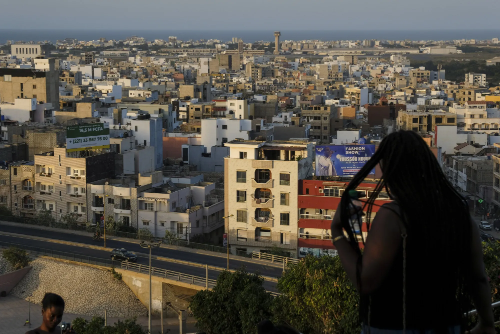IMF Expects Sub-Saharan Africa GDP to Grow 3.8% in 2025

TLDR
- Sub-Saharan Africa’s economy is projected to grow by 3.8% in 2025, down from 4.0% in 2024
- This reflects a modest recovery toward pre-pandemic levels despite ongoing global headwinds
- Senegal is forecast to grow 8.4% in 2025, driven by energy sector developments
Sub-Saharan Africa’s economy is projected to grow by 3.8% in 2025, down from 4.0% in 2024, according to the IMF’s April 2025 World Economic Outlook. This reflects a modest recovery toward pre-pandemic levels despite ongoing global headwinds.
Growth remains uneven across the region. Senegal is forecast to grow 8.4% in 2025, driven by energy sector developments. Guinea follows with 7.1%, supported by mining and infrastructure. Rwanda is also expected to grow 7.1%, maintaining its strong post-Covid momentum.
Nigeria is projected to grow at 3.0% in 2025, and South Africa at 1.0%, both below the regional average. Côte d’Ivoire and Benin, two key WAEMU economies, are expected to grow 6.2% and 6.5% respectively. The IMF notes that inflation is likely to slow to 5.6% in 2025 across emerging economies, but risks remain from debt servicing costs, climate shocks, and global trade disruptions.
Daba is Africa's leading investment platform for private and public markets. Download here
Key Takeaways
The IMF forecasts strong growth for several Francophone African countries in 2025. Guinea (7.1%), Senegal (8.4%), Benin (6.5%), and Côte d’Ivoire (6.2%) are expected to outperform both the regional average (4.2%) and many large economies in Africa. This divergence reflects structural investments in energy, transport, and public infrastructure. Senegal’s oil and gas projects are central to its growth. Côte d’Ivoire and Benin benefit from strong export industries and growing digital economies. However, despite headline growth, risks remain. Climate shocks, debt vulnerabilities, and food price inflation continue to weigh on real household incomes. Public investment strategies must prioritize resilience and inclusion to sustain this momentum. Investor attention is likely to shift toward these high-growth economies, especially in sectors like infrastructure, fintech, and consumer goods. For long-term convergence with global markets, regional coordination and institutional reforms will be essential. If sustained, this growth could anchor West Africa’s transformation into a more prominent player in the global emerging markets landscape.

Next Frontier
Stay up to date on major news and events in African markets. Delivered weekly.
Pulse54
UDeep-dives into what’s old and new in Africa’s investment landscape. Delivered twice monthly.
Events
Sign up to stay informed about our regular webinars, product launches, and exhibitions.




